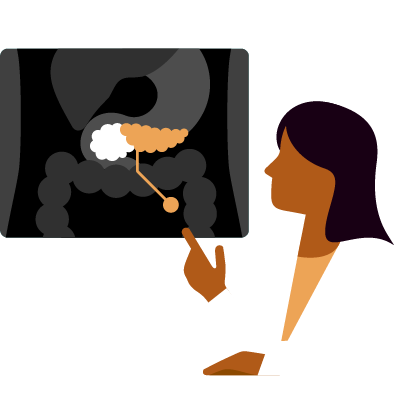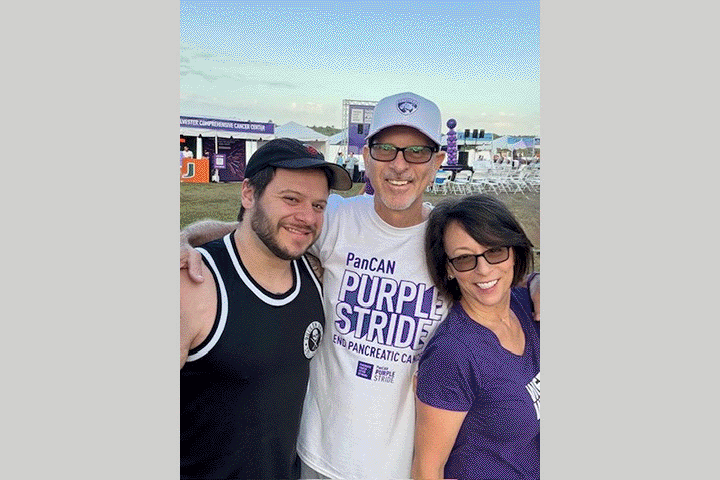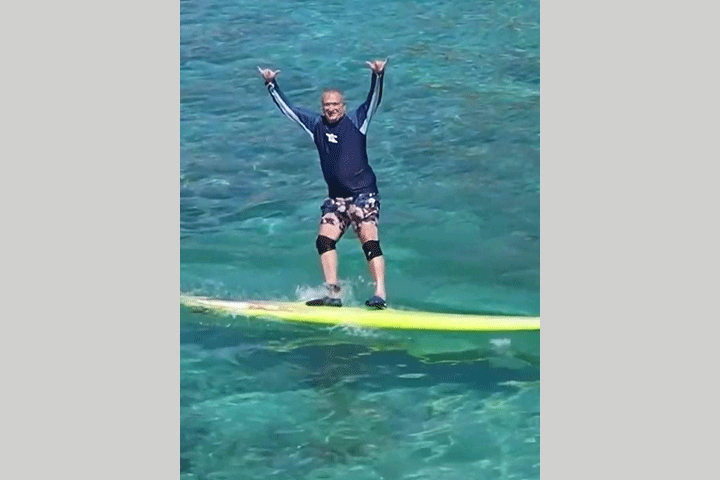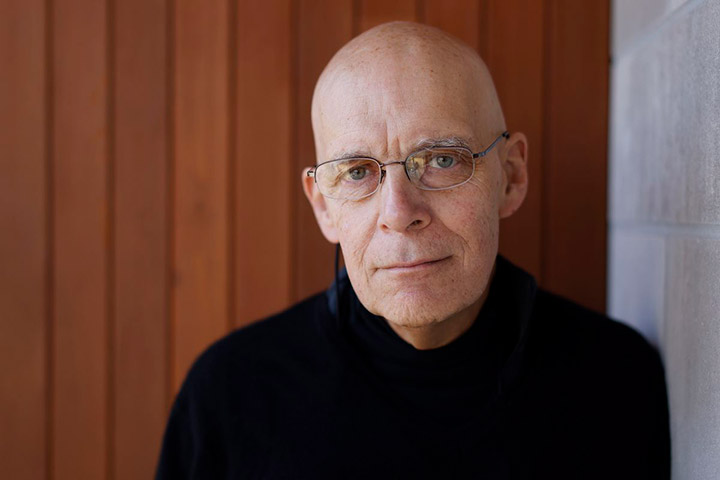At the Table: Anxiety Before Each Chemotherapy Treatment
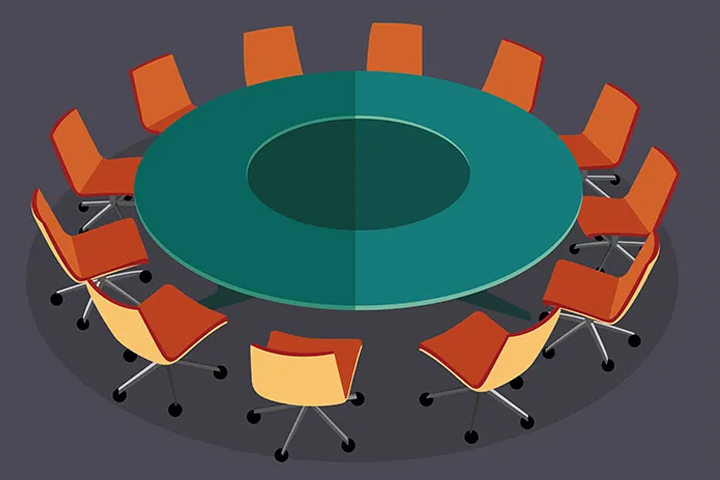
Everyone knows that the side effects of chemotherapy and radiation can be quite uncomfortable, even downright unpleasant.
Knowing that you have to face this again and again adds to the uncertainty surrounding treatment. But you are not alone. We asked a group of pancreatic cancer patients and survivors from the U.S. and Canada whether they had anxiety before each treatment and how they coped. Learn about the different ways other patients managed their chemo anxiety.
Did you have anxiety before each treatment?
David Dessert: Knowing that I was heading to chemo and would be getting flu-like symptoms again gave me tremendous anxiety. Eventually the anxiety from anticipating the side effects ruined even the good days before chemo.
Chris Joseph: My anxiety was like clockwork. Starting a few days before each treatment, I would be in dread, knowing that I would feel the side effects until the next treatment. For cancer patients on infusion pumps, there really is no break. You go in, they strap on the pump for a week, and then you go back to the doctor for the next infusion. It can be relentless.
Angella Dixon-Watson: Infusion day was torture. My port was deep, and not every technician could locate it immediately. Every Tuesday morning while heading to the hospital I had extreme anxiety worrying about the painful poking around to find my port.
John Moisan: I had what I call “situational anxiety” about EVERYTHING. When I was diagnosed, I had been the caregiver for seven years for my wife Sylvia, who had a stroke. Add in the pancreatic cancer diagnosis and the anxiety ratcheted up 200 fold.
I had ramped-up anxiety for the first two or three sessions of gemcitabine, worrying “when is the sickness shoe going to drop and my hair start falling out?” To my surprise, the gemcitabine had no negative effects aside from mild tiredness, because I was in excellent physical condition. After each session, I felt great and any anxiety that I had beforehand went away.
The anxiety reappeared a couple of days before I started radiation and 5-FU, because I had met several people in the infusion center who were desperately ill from the treatment. The anxiety came as soon as I could hear the pump pushing chemo into my port, because I knew that in 15-20 seconds, I was going to feel very nauseous. However, my main side effect from the radiation was fatigue, but it really never was more than I could handle while still caring for my wife.
Sandy Robis: I have very little anxiety because sadly, both cancer and chemo are not new to me. I am a two-time cancer survivor. The majority of chemotherapy regimens have similar side effects and there are pretty effective medications that can be prescribed to lessen these side effects. What is frightening to patients is whether one of those side effects could be permanent and debilitating, affecting your work life, your relationships, and overall quality of life.
Was your anxiety more related to the pancreatic cancer or the side effects of chemo?
Chris: BOTH! A diagnosis of pancreatic cancer (or any cancer for that matter) is difficult enough; however, in my case I learned after a few months that the chemo wasn’t working AND I was feeling awful because of the chemo treatments.
William Ramshaw: I had few side effects from my chemo, other than feeling a little dumpy for a couple of days right after a treatment. But finding out only about five percent of those getting a pancreatic cancer diagnosis see five years hammered me. I wanted to be there for my three daughters’ weddings, and not have them hear blank silence at “Who gives this woman?”
Sandy: I found the anxiety waiting for the lab and scan results to be worse than the chemo itself. I was also anxious about not having the “big picture”—for example, learning that the treatment you are undergoing now prohibits you from having another treatment or clinical trial down the road.
John: I did not experience long-term anxiety related to chemo, once I found out that the horror stories people told me were not true for me. However, I have had trouble sleeping for years, and when I was diagnosed with pancreatic cancer, I could not sleep at all. It was terrible so my oncologist prescribed an anti-anxiety medication. In July 2014 I began taking it 30 minutes before bed; I continue to take it today.
I still have “situational anxiety.” Not just because of my caregiving responsibilities, but also because I understand that pancreatic cancer is known to return (sometimes) beyond the five-year survival time.
Did you find any particular techniques that helped you through the anticipation anxiety around chemo?
Angella: Listening to music and reviewing funny emojis and images sent by my friends helped ease my anxiety in the chemo chair.
David: The engineer in me can process information much better when I know how and why things work. That lets me devise ways around a problem that work for ME. So I listened to how everyone else handled it and looked for what clicked with me.
My revelation was that anti-anxiety medications could “fix” the nausea or dread before a treatment. That clicked in me. Additionally, I think that resilience—knowing you can do this—is important to cope with the anxiety around chemo.
Chris: Many things helped—meditating and breathing; yoga; taking short walks every day; connecting as best as possible with family and friends; crying; laughing; even writing or blogging. I think the biggest and best thing I did was to listen to my body and my intuition and quit chemo when I learned it wasn’t working, so I could find a different treatment.
William: Where my treatments lasted less than an hour, I soon learned others spent hours getting theirs. Even as a former military guy who has seen some tough stuff, seeing the struggles of the other patients broke my heart. To help me handle this I whispered prayers for those around me, knowing all too well I could be in their shoes.
Sometimes what we don’t know is far more terrifying than what we do know. I canvassed the web for everything I could find out about my treatment. Knowing the odds were stacked against me, I found an odd solace in understanding my chemo treatment plan, how it was researched, developed, and its expected outcomes. Although reading through the grim survival statistics terrified me, at the same time they comforted me.
Sandy: I have three pieces of advice. 1. Educate yourself on your treatment so you know the side effects. Stay on top them by taking the medications to ease nausea or pain on time, so you don’t have to catch up when you start to feel bad. 2. Stay busy so you don’t focus on your treatment. I took my chemo pump and went shopping or to the gym (this was before COVID). 3. Leverage your support system and accept help. Remember, stress and cancer are NOT friends. I don’t stress the small things in life, and I refuse to let chemo be more than a “small thing.”
John: I found that “extreme exercise” (every other day) helped me a great deal with the situational and pancreatic cancer anxiety. Running, lifting weights, using exercise machines, and listening to my favorite rock and roll music helped me forget about the world and concentrate my efforts to beat the disease.
I still have mild, mild anxiety about the pancreatic cancer. . . . What if it comes back? But I do my best to put it in the past, forget about it, diplomatically try to help people who have been diagnosed with pancreatic cancer, keep exercising, and move on. If it comes back, I’ll deal with it. If it doesn’t, I’ll live my life. I am very happy and lucky to be alive. I think God decided to keep me around to care for my wife—we’ve been married for 53 years. I started loving her in 1963 and haven’t stopped.



